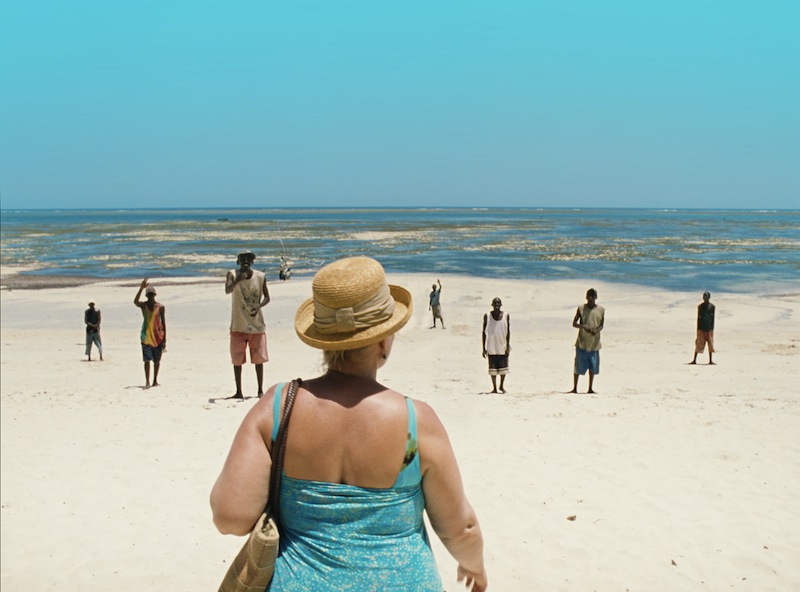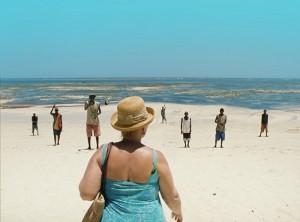Paradise: Love – The comeback of Ulrich Seidl

After five years of silence, the extravagant Austrian iconoclast Ulrich Seidl returns to the Cannes competition (his film Dog Days was competing in 2001) with the first part of his trilogy Paradise, which will follow stories of three women from the same family. Love focuses on sex tourism and follows the journey of a single middle-aged Austrian mother, Teresa (Margarete Tiesel). She packs her daughter off to a weight-loss camp (the story to be told in a follow-up part) and leaves for an exotic holiday in Kenya, where she unexpectedly finds she has become a sugar mama.

Paradise: Love focuses on sex tourism and follows the journey of a single middle-aged Austrian mother, Teresa.
Going from one beach boy to the next, Teresa is hoping to find true love – someone who would, as she says, look through her eyes deep down into her soul, fall in love with her despite her aged and obese body and truly believe that she is beautiful. True love, after all, must be able to conquer the difference of colour, culture, social class and language. However, she is soon to discover that love in Kenya is just another business and the illusion she ends up paying for is not convincing enough – in the end, it is only sex for sale with a bunch of “you are my first white woman” lies thrown into the package, targeted to suit love-starved Western female clientele which Teresa deplores to acknowledge being part of. As self-deception of permanent happiness proves unobtainable, she involuntarily crosses the thin boundary between the exploited and the exploitee and verbally abuses a Kenyan stripper that her friends order for her birthday.
Shock and provocation has already become an expectation in Seidl’s semi-improvised, fictional documentary stories and Paradise: Love is just as grotesque and obsessed with visual depictions of various forms of ugliness as his previous works. The use of static shots and formally rigid cinematography (Ed Lachman is Seidl’s longtime collaborator) puts the story on a pedestal, with some sequences approximating a conceptual staged art piece in a gallery rather than full-proof cinematic illusion. Margarete Tiesel puts up a performance praiseworthy for braveness – not every middle-aged actress would put herself in such a vulnerable position of spending more than half of the film naked, openly detesting her own saggy breasts so convincingly.
It almost appears that Seidl himself detests half of his characters and the other half (the Kenyans), he mocks by presenting as third world exoticism from the Westerner’s point of view. The portrait of the Western tourist, in particular – the culturally insensitive other is worked into a subtle pastiche – is so subtle that, in fact, there often seems to be no other purpose or conclusion to the whole story other than the dirty pleasure of observing the well-rendered gullibility, stupidity, self-deception and narrow-mindedness of Teresa as an idea in itself. Teresa’s character invokes similar reaction to that of Selma Jezkova’s (Bjork) in Lars von Trier’s Dancer in the Dark – we would like to empathise with her and feel sorry for her misfortunes, since her motives are genuine and pure… if only she wasn’t so moronically naive.
Overall, this is a strong story with a colourful and fearless cast, interesting and yet unexploited subject matter (with the only exception being Laurent Cantet’s 2005 film Heading South) and aesthetically distinguished cinematography. The plot does not offer many twists and turns, but fans of European art-house will definitely enjoy it.
Ruta Buciunaite
























Facebook
Twitter
Instagram
YouTube
RSS